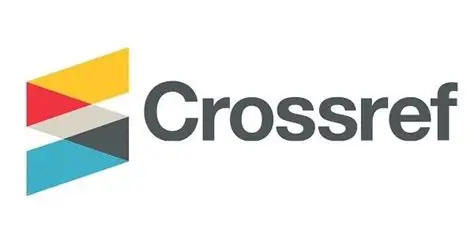MOOCs in Higher Education: A strategy of Learning for Enhancing Quality of Education
Keywords:
Higher education, MOOCs, Role of MOOCs in Higher Education,,Abstract
The digital revolution in education during the last decade has been undergoing
immediate changes on both the fronts of dissemination and reception first through E
Learning and more Recently through Massive open online courses. MOOCs are changing the
Paradigm of Education around the world. Massive Open Online Courses (MOOCs) can be
characterized as a pedagogical approach that leverages the utilization of accessible
information and communication technology to enhance the process of learning. E-learning
refers to the integration of educational content with the utilization of Internet technologies. In
contemporary society, there has been a notable increase in the global nature of education, as
individuals seek out opportunities for learning that are both accessible and engaging. Many
students choose a learning method that is dynamic and engaging, rather than monotonous and
dull. Online learning has the potential to offer high-quality education to remote and rural
areas through the utilization of contemporary technologies such as satellites, the internet, and
mobile devices. Online learning is revolutionizing the education landscape globally. It has
gained significant popularity as a preferred medium for acquiring knowledge, leading to a
shift from traditional educational approaches to technology-driven instructional methods.
This paper discuss about MOOCs and their future and current trends in respect of India.
it also examines the how MOOCs are Maintaine the quality of Education in India.
References
Chauhan, J., & Goel, A. (2017). An overview of MOOC in India. International
Journal of Computer Trends and Technology, 49(2), 111-120.
Volery, T., & Lord, D. (2000). Critical success factors in online
education. International journal of educational management, 14(5), 216-223.
Castillo, N. M., Lee, J., Zahra, F. T., & Wagner, D. A. (2015). MOOCS for
development: Trends, challenges, and opportunities. Information Technologies &
International Development, 11(2), 35–42.
Lazarus, F. C., & Suryasen, R. (2022). Enhancing the Higher Education Quality with
MOOC Penetration: Role of Policy, Library and Curriculum. Library Philosophy &
Practice.
(Ict):
Singh, P., & Shastri, S. D. R. K. (2021). Information And Communication
Technology
A Tool For Transforming Higher Education In
India. PSYCHOLOGY AND EDUCATION, 58(2), 11029-11039.
Mahajan, R., Gupta, P., & Singh, T. (2019). Massive open online courses: concept
and implications. Indian pediatrics, 56, 489-495.
Sheikh, Y. A. (2017). Higher education in India: Challenges and
opportunities. Journal of Education and Practice, 8(1), 39-42.
Phoenix: International Multidisciplinary Research Journal
Vol 1, October-December, 2023
ISSN: 2583-6897
Subbian, V. (2013, March). Role of MOOCs in integrated STEM education: A
learning perspective. In 2013 IEEE Integrated STEM Education Conference
(ISEC) (pp. 1-4). IEEE.
Alhazzani, N. (2020). MOOC’s impact on higher education. Social sciences &
humanities open, 2(1), 100030.
Devgun, P. (2013). Prospects for success of MOOC in higher education in India.
International Journal of Information and Computation Technology, 3(7), 641-616.
Mulder, F., & Jansen, D. (2015). MOOCs for opening up education and the
OpenupEd initiative. MOOCs and Open Education around the world, 130-142.
Rodrigo, C., Read, T., Santamaria, M., & Sánchez-Elvira, A. (2014). OpenupEdLabel
for MOOC quality assurance: UNED COMA initial self-evaluation. In Actas del V
Congreso Internacional sobre Calidad y Accesibilidad en la Formación Virtual
(CAFVIR 2014) (pp. 551-555).
Commonwealth of Learning (2017), Open Educational Resources: Global Report
, Learning for Sustainable Development, Barnaby, British Columbia, available
at:
http://oasis.col.org/bitstream/handle/11599/2788/2017_COL_OERGlobalReport.pdf?s
equence=1&isAllowed=y
Davis, G. (Ed.) (2008), Quality Education, Prospects and Challenges, A.P.H.
Publishing Corporation, New Delhi.
Gough, S. and Scott, W. (2007), Higher Education and Sustainable Development,
Paradox and Possibility, Routledge, London.
Lockywood, F. and Anne, G. (2006), Innovation in Open and Distance Learning,
Routledge,
Kogen Page, London.
Mishra, S. (2017), Open Universities in the Commonwealth: At a Glance,
Commonwealth
of
Learning,
Brnaby,
available
at:
http://oasis.col.org/bitstream/handle/11599/2786/2017_Mishra_Open-Universities-in
the-Commonwealth___.pdf?sequence=3&isAllowed=y
Philip, E. (2008), “Producing workers: employability and quality in higher
education”, in George, D. (Ed.), Quality Education, Prospects and Challenges, A.P.H.
Publishing Corporation, New Delhi.
Prakash, V. (2011), University and Society, Issues and Challenges, Some Ideas from
Leading Practitioners of Higher Education, UGC, New Delhi.
Srivastava, M., Kurup, J.M. and Nembiakkim, R. (2007), “Reaching out to the un
reached through ODL: role of IGNOU in the North East Region”, Indian Journal of
Open Learning, Vol. 16 No. 2.
Sukhadeo, T. (2006), Higher Education in India, Emerging Issues Related to Access,
Inclusiveness and Quality, Nehru Memorial Lecture, New Delhi.
Tanaka, A.C. and Tabucanon, M. (Eds) (2014), Transforming Higher Education and
Creating
Sustainable Societies, United Nations University and Institute for the Advanced Study
of
Sustainability, Tokyo.
Tilak, J.B.G. (2015), “Higher education in South Asia: crisis and challenges”, Social
Scientist, Vol. 43 No. 112, pp 43-59.
Parr, Chris Mooc creators criticise courses lack of creativity. Times Higher Education,
, October, 2013.
(http://www.scientificamerican.com/article.cfm?id=how-moocs-can-help-india).
(http://www.hole-in-the-wall.com/).
Phoenix: International Multidisciplinary Research Journal
Vol 1, October-December, 2023
ISSN: 2583-6897
(http://newindianexpress.com/editorials/MOOCs-cantransform-higher
education/2013/07/22/article1695037.ece1).
(http://www.boston.com/yourcampus/news/harvard/2013/06/edx_adds_the_first_colle
ge_).
(http://www.universityworldnews.com/article.php?story=20130607104833762
(http://www.peachpundit.com/2013/05/29/georgia-techs-online-csmasters-degree
branded-for-att-and-udacity-priced-for-dubai-and-bangalore/).
https://www.classcentral.com/report/moocwatch-25-india-online-degrees/
https://thelogicalindian.com/story-feed/awareness/moocs/
https://learnos.files.wordpress.com/2012/11/ey
ficc_higher_education_report_nov12.pdf


